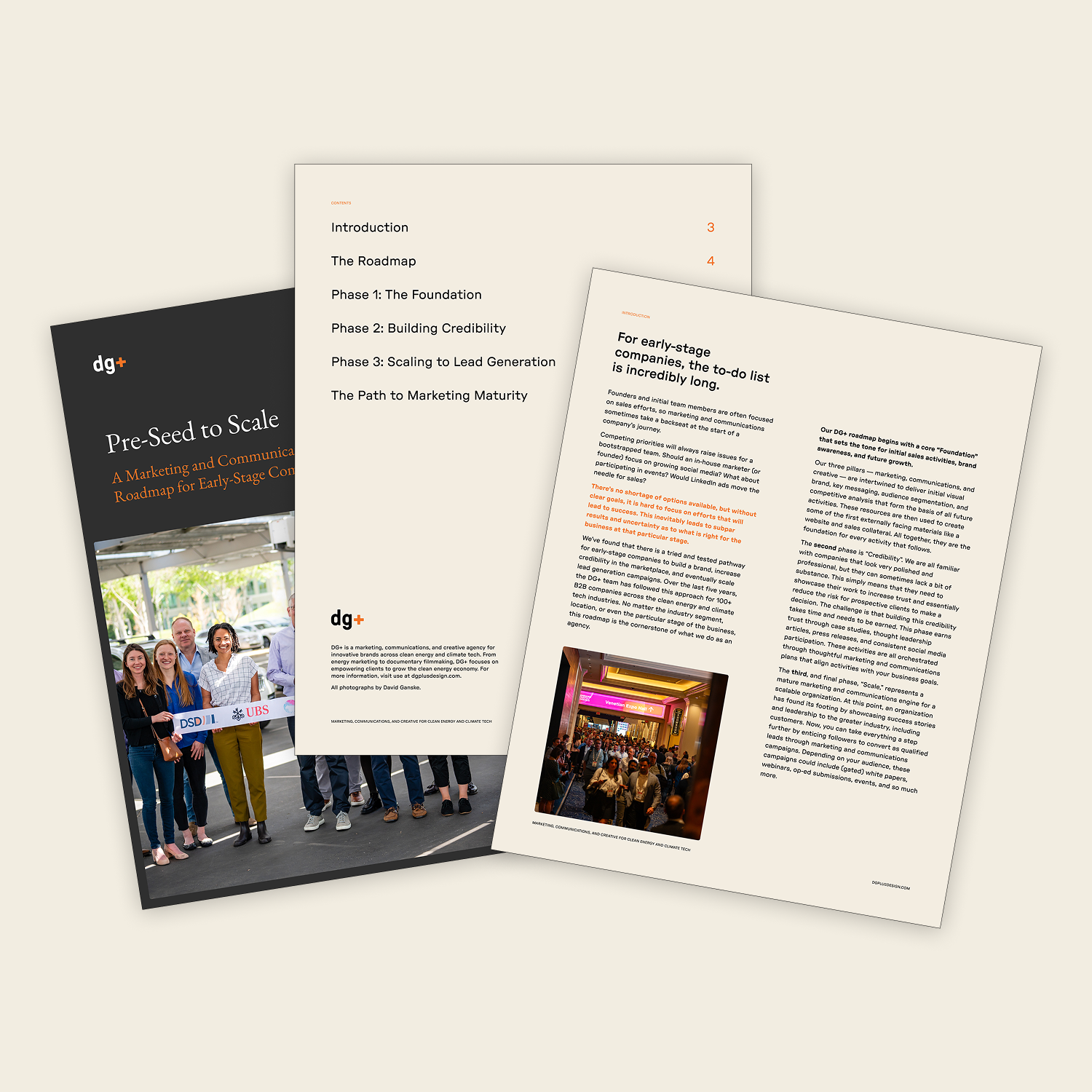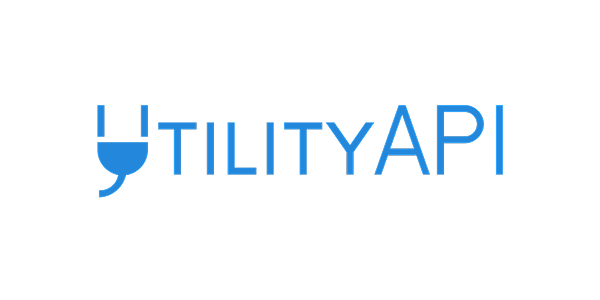Cleantech and climate tech companies need good PR. As key players in the world’s race to address climate change and deploy clean energy, their stories provide concrete proof of what is — and isn’t — going right in that effort. And who better to help these businesses deliver their message than former media professionals?
Finding — and keeping — a job in journalism is getting harder as smaller newsrooms shutter their doors, interest in local news fades, industry employment rates keep falling, and the industry reinforces its reputation as a high-effort, low-financial-reward field. PR and communications commonly draw former journalists, whose experience with the media, storytelling skills, and knack for writing can make them a valuable asset to the field.
Dana Filek-Gibson and Daniel Jones, two of DG+’s communications and marketing managers, worked as journalists in their past lives. I sat down with them to learn more about what drew them into communications, what skills they bring to the table, and how they see the PR-journalist relationship.
Note: These interviews were edited and condensed for clarity.
Walk me through your journalism background.
Jones: When I was in school, I always loved to write and I [eventually] latched onto the idea that I wanted to write as a profession. I studied journalism at the University of Missouri, which was close to where I grew up and is known for its journalism program. After I graduated, I worked for the Columbia Daily Tribune as a sports journalist covering high school and college sports. I loved working there, but I left in 2019 after it was bought out by a larger company and the culture changed very dramatically. I’ve been working in communications and marketing ever since.
Filek-Gibson: I fell into journalism by accident — I studied fiction in university and I was always interested in storytelling. After I graduated, I wasn’t clear yet what I wanted to do, so I taught English in Vietnam for a year. I then ended up working in local news in Vietnam at English-language publications, where I did a lot of boots-on-the-ground reporting. It was really a blessing because I had a lot of opportunities to do things I never would have been able to in North America. Eventually, I moved to Canada and worked as a copy editor for Global News. It was a fast-paced newsroom, and from there I ended up in climate journalism at Canada’s National Observer. Once you start pulling the thread and learning more about climate, you fall down the rabbit hole! I worked there for another three years before I came to DG+.
Why did you leave journalism and transition into PR and communications?
Filek-Gibson: I had been in journalism for about 12 years, and I loved it. I still really love the storytelling aspect of it. That's always been what has drawn me to any and all writing. And I think it's a very important tool for communication and for getting information out to people, but it is a hard industry. It’s hard to make newsrooms profitable and viable over the long term.
I felt like I needed a change. With climate in particular, there’s tons of important reporting [to do], but in a lot of ways, it feels like journalism isn’t the only tool we need to meet this moment. Journalism has a part to play, but there are also some other really important communications tools that we need to leverage to get people to move toward action. Communications seemed like a natural jump because it was still the same storytelling, just with a different interest. It's still about telling compelling stories. It's still about telling the truth.
Jones: I believe in the value of journalism. I believe that journalism is essential. But I did become disillusioned with the journalism industry and being part of a conglomerate news organization that I felt like had no interest in the newspaper I worked at. I didn’t feel like management valued the quality of our work or in making it a better newspaper. Our corporate management had no vested interest in us putting out high-quality content.
Their approach seemed to be, “Cut costs, cut people.” Over half of the newsroom was laid off — we went from a team of 20 people to a newsroom of about 10 in four years. There were four photographers when I started there and one when I left. It was very, very difficult to see that. I was interested in continuing to write, but I wanted to do so in a different setting and I was looking for opportunities to grow.
What journalistic skills have been most valuable in your PR and communications work?
Jones: My experience working and studying as a journalist gave me a healthy skepticism. The phrase I always go back to is: “Trust but verify.” I bring that attitude to everything I work on, and I want to make sure everything is accurate and certifiable. Especially as a writer, I think it’s healthy to have a level of skepticism.
Filek-Gibson: That skepticism is really useful whether you’re in a newsroom or anywhere else. Being able to ask questions and look beyond what someone’s telling you about a particular sustainability initiative or climate action is really important. Especially when you’re working with a company, being able to ask really pointed questions is key to understanding how their commitments align with their communications — and re-evaluating when they don't.
Jones: Another thing that came out of my journalism career is being open to editing, revision, and feedback, which are all a crucial element of that job. It’s been really helpful to bring that mentality into my role at DG+ and to understand that feedback on and editing of my writing are good things — someone having suggestions for how to make my work better isn’t something to take personally. That openness to feedback is a key element that goes beyond writing.
What is the biggest asset journalists bring to the PR and communications conversation?
Filek-Gibson: Without newsroom experience, it can be difficult to see how the sausage gets made: What do reporters need to know? What makes a story relevant? Who’s being pitched? What do spokespeople need to provide? Yes, the speed of business is quick, but the speed of journalism is lightning-fast — you have to be able to answer things on a dime. Having that journalistic experience makes it a lot easier to help clients understand best practices.
Most journalists are also naturally curious; they’re willing to learn, to ask questions, and to recognize what they don’t know. And they know how to find the information they need.
Jones: Journalists share a passion for the truth. The best PR and the most impactful communications are grounded in just that: truth. Companies can get a lot out of not abiding by the truth (for instance, by greenwashing), but the truth always wins out in the long term. Bringing that attitude to PR may not always be immediately or obviously apparent, but in the long run, it always plays out for the better.
Filek-Gibson: Former journalists also have a deep understanding of the relationship with earned media. Depending on who you ask, journalists can be viewed a lot of different ways: as adversaries, as allies, or anything in between. Helping clients understand that journalists are just regular people is critical, as is being able to explain the journalist-interviewee relationship and how the process works. Pitching a story doesn’t guarantee coverage, and you’re not in charge of if or how journalists cover your company.
Jones: As a journalist, you don’t get a lot of experience on how to call people to action. You’re not meant to be part of the action — you’re not writing to incite, but to inform and educate. Figuring out your call to action is a really good place to start when you’re in PR. Before you ask someone something, consider what you can give them in return: What can you teach them? What information can you provide them? What resources can you point them to? Then, you can get into calls to action. Where journalism skills come in is by being able to write, inform, and educate, and to do so in a meaningful way. Calls to action are more impactful if they’re tied to informative, resourceful writing or deliverables — if you can tie a call to action to something that is knowledgeable.
Any perspectives you’ve gained since transitioning out of journalism?
Filek-Gibson: It can be a really love/hate relationship [between journalism and PR]. But despite the tensions and challenges communicating between the two, we need each other, and it’s valuable to have both sides.
Jones: When I worked in journalism, PR felt like the enemy. If I was chasing a story and had to go through spokespeople and PR professionals to get to the people I really wanted to talk to, it felt like there was a boundary that made it harder to find the objective truth. Now that I’m here, I don’t feel like putting a subjective spin on the truth is a part of my job at all — I feel like I am supporting messaging that is really important, and my experience as a journalist has made me wary of doing otherwise. I’m not interested in putting out messaging I don’t believe in — I’m happy to work at an organization like DG+ where I support the messaging and vision of our clients and work on a cause that means a lot to me.
PR exists because journalism exists. And, at its best, PR can be a channel toward the truth, not a barrier to it.
Interested in bumping up your cleantech or climate media relations, communications, and PR game? Contact us today.



























